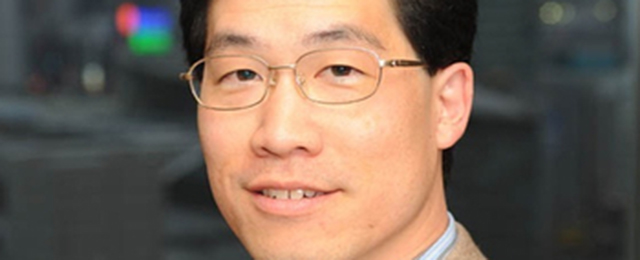-Question: You just briefed the new Japanese government, which was campaigning under the slogan: “to revive the economy, there is no other way,” suggesting all recipes have been tried. Which recipes have indeed been tried and haven’t worked?
Answer: One of the thing I feel that is still incomplete about the first and second arrow is how the fiscal stimulus has not trickled down past the Banks and large companies. I feel there is still work to be done where money will actually get to the workers who will feel more comfortable spending.
– Is there any weapon or plan B left?
Yes, there are many “Plan B’s” left that we are implementing or planning on.
– We have the impression that Japan is weary of elections yet no candidate has managed to deliver structural reforms. Are you considering any?
Real structural reform is hard in any democracy. However, given the right leadership in someone like PM Abe, I think you actually see several tangible results occuring. Personally, I’m focusing a lot of my efforts on the structrual reform of the education ministry as many of Japan’s problems are rooted in education since it forms the culture, biases and understanding of a nation. It is also the key to things like innovation and entrepreneurship – áreas Japan has been somewhat weak in for the last few decades.
-Are we too quick to judge the Abenomics? Is it unfair to think it would be the magic potion?
Yes, we are approaching the 25th year anniversary of the height of the Nikkei stock market average. We are still 50% of that height. It will definitely take a few years to turn this ship. People forget that Quantitative Easing (QE) as a Japanese innovation. People were quick to dismiss it initially or even laugh at it. Now, its become a legitimiate “tool” for many countries.
-Can the Japanese Central Bank do anything else? Have you fallen into a liquidity trap?
I think the best thing it can do is to show that it will stay the course and not waver.
– Japanese firms hold ¥229 trillion ($2.1 trillion) in cash, 44% of GDP. Does that reveal fear of the future, lack of expectations or investment alternatives?
I think its based on a lack of confidence. Once we have a track record of change, I believe you will see the purse strings loosen. That will probably start with higher wages for the employees.
-With those fully loaded chests, why aren’t Japanese companies going shopping abroad?
I believe they actually are. Problem is, Japan has never been good at marketing itself. Whether government or Japan, Inc.
-Why is nobody buying Japanese firms?
This is also probably not a true statement in a broad sense. Of course, there are stereotypes (many which are true) of Japanese companies that frighten potential acquiring companies.
– If you want inflation people need more disposable income to start consuming. What is Tokyo willing to do in terms of salaries to spur demand?
I think this will happen naturally as the job market has been tightening with unemployment being very low. Based on supply/demand, wages will have to increase. One thing preventing this is mobility in the job market. Once this stigma (of changing Jobs) is finally removed, you will see wage pressures.
-The differential between German and Japanese debt has reached its historical minimum of 30bp. Does this mean we are getting closer to the the so-called Japanization of Europe?
In some ways, yes. Again, QE is already being used….
– Krugman said that the West has, in fact, fallen into a slump similar to Japan’s — but worse. Do you agree?
I agree. Its worse because you don’t have the benefit of dealing with just one cohesive country. When you have many countries with different development, productivity and fiscal levels, trying to harmonize that is, I believe, an incredible challenge.
– Japan has been suffering from deflation for 15 years of deflation. Any tip for Europe/ECB?
The mindset of the people is very important. When you have an aging population on a fixed income, many (incorrectly) assume deflation is a good thing. This needs to be changed early on. I think Japan has some unique structural (dual shrinking/aging population) that Europe has yet to see the impact fully. It will come eventually, but policy needs to head off this mindset.
– Japanese public debt is of 240 per cent of GDP. Some Southern European countries registering a public debt above 100% of GDP have been “adviced” by the City of London to accept debt restructuring. What do you think of that? Have you thought of that path?
Problem in Japan is that its not seen as acute by many here. Specifically because the private savings of the Japanese still compensates for this. Rightly or wrongly, I feel we need to be quite critical about the level of debt we have and take measures to reduce it.
-How much public debt can a country stand while trying to grow at the same time?
I don’t know.
-Has Japan lost its technological avant-garde leadership?
This is a difficult question because Technology can be defined as everything from the ability to invent, innovate (different fro invent), creativity, entrepreneurship, etc… clearly, Japan has lost its edge in many of these fields but not all (look at the number of Nobel laureates we produce)
– Nuclear plants are working again, which is still contentious after the Fukushima disaster. Are they essential to fix Japan’s trade deficit?
Yes, Japan is an island. We import most of our energy in an increasingly weaker yen environment. Renewables are not moving the needle. Nuclear plants are critical in freeing up this cost.






Be the first to comment on "“People forget that QE is a Japanese innovation”"